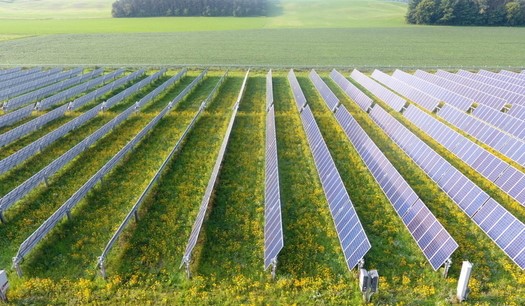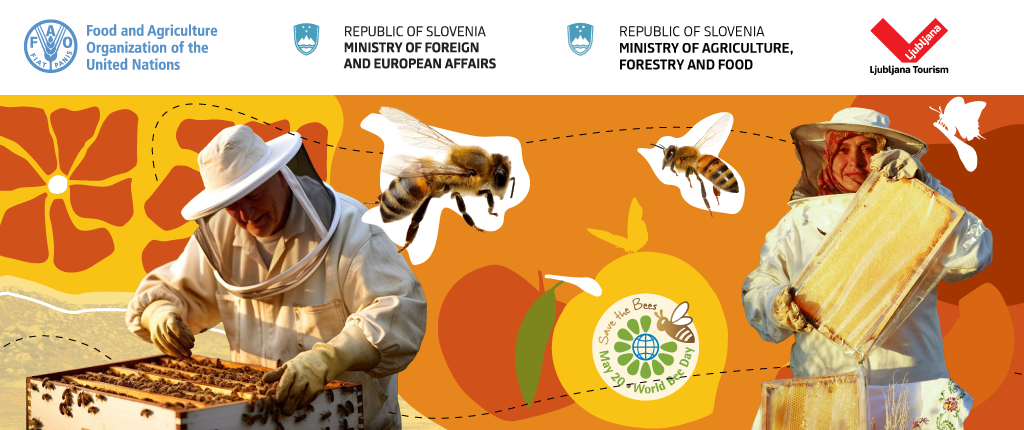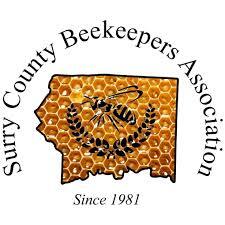Solar Power Site Aims to Save Endangered Bees, Butterflies
A flowering meadow will grow under and around the new solar panels at Cople Elementary School in Virginia like this project by Engie Distributed Solar. (SunTribe Solar)
RICHMOND, Va. – An elementary school in Westmoreland County is getting recognition for more than education.
The Virginia Pollinator-Smart Program announced that Cople Elementary gets the state’s first Gold Certified pollinator-friendly award for a solar panel array. Solar sites like Cople include acres of native plants and grasses to attract endangered pollinators, such butterflies, bees and wildlife.
Lisa Mattson, director of pollinator programs with Sun Tribe Solar – which installed the array with the state program – says these species are crucial for the food system.
“Pollinators are of the utmost importance, because 75% of our food crops rely on pollinators for promulgation,” says Mattson. “Pollinators are in terrible danger right now, and we all have an obligation to do what we can to bring them back.”
The Commonwealth’s Pollinator-Smart Program will be posting a webinar about how to build pollinator landscapes at solar installations and in communities. The Virginia Department of Conservation and Recreation website has more information.
Virginia is likely to see even more solar pollinator-friendly installations, with passage of the 2020 Virginia Clean Economy Act. The landmark bill shifts the state away from fossil fuel use to renewable energy by 2050.
The law prioritizes solar access. And Rob Davis, director of the Center for Pollinators in Energy with Fresh Energy – a nonprofit that supports the Virginia Pollinator-Smart Program – says that means a potential boom in solar pollinator habitats across the state.
“We’re talking about an incremental but meaningful difference in the vegetation growing around, as well as under, the plans throughout the project,” says Davis.
In the United States, the number of bee colonies per 100 acres has declined by 90% since 1962, according to Greenpeace. Climate change, use of pesticides and habitat loss are considered leading causes of the decline.
Disclosure: Fresh Energy contributes to our fund for reporting on Energy Policy, Environment, Rural/Farming, Sustainable Agriculture. If you would like to help support news in the public interest,
Diane Bernard, Public News Service – VA
________________________________________________________________________________










